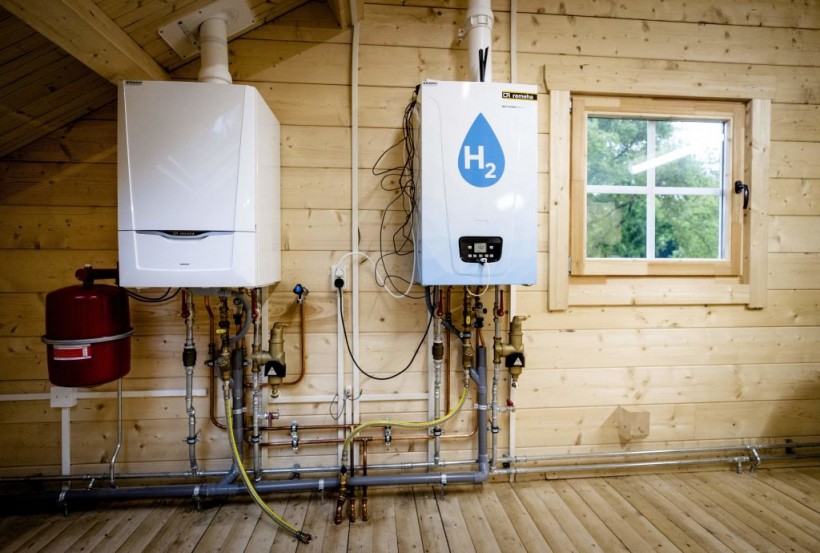(Photo : Photo by SEM VAN DER WAL/ANP/AFP via Getty Images)
30 studies contradicted the government's claim in favor of hydrogen for heating homes and cutting greenhouse gas emissions. This has cast doubts upon hopes that hydrogen will decarbonize the economy.
The report was published on Tuesday in the peer-review scientific journal Joule, making it the third major blow to proponents of hydrogen use for home heating in the past week, including Business Secretary Jacob Rees-Mogg who told the Commons that hydrogen was a 'silver bullet', BBC News reported.
Unlike fossil fuels, hydrogen is believed to not give off CO2 when it burns, and "could be used as a way to store excess renewable power, with some adjustments piped through to people's houses to heat them during the winter," said Mr. Rees-Mogg.
While many energy scientists agree with Mr. Rees-Mogg's assessment, 30 studies concluded that hydrogen is unsuitable and unlikely to play a major role in home heating, according to The Guardian.
All But a Pipe Dream
Heating and cooling accounts for around 50% of total global final energy consumption, of which half is consumed for heating homes or buildings and most is fossil fuel based.
No matter what angle you look into, having net zero greenhouse gas emission is not attainable, which is why many gas and heating industry representatives promote low-carbon and zero-carbon hydrogen as solution to replace fossil gas.
While this may sound attractive at first glance, all of the independent research on this topic reached similar conclusion: "Heating with hydrogen is a lot less efficient and more expensive than alternatives such as heat pumps, district heating and solar thermal," said Jan Rosenow the report's author and Europe Director at the energy think-tank the Regulatory Assistance Project.
More so, the whole context was described as all but a pipe dream, and that compared to other alternatives such as heat pumps, solar thermal, and district heating, hydrogen use for home heating "is less economic, less efficient, more resource intensive, and associated with larger environmental impacts."
Also read: More Than Half of a Thousand Palm Tree Species at Risk of Extinction
Not a Miracle Energy Source
Hydrogen may look appealing since it doesn't release CO2 when burnt, can be made from water, and considered limitless, even. However, it is still no miracle and poses big challenges when being made.
For hydrogen to be considered 'green', it has to electrolyze water using electricity from renewable sources, which is an inefficient process. In fact, heating homes with green hydrogen uses approximately six times more renewable electricity than heat pumps, according to David Cebon of the Hydrogen Science Coalition and Professor of Mechanical Engineering in Cambridge University.
He adds that well-known laws of thermodynamics already determine the answer, and there's no time or resources to waste trying to find out what role exactly hydrogen plays in home heating.
Although it does help in decarbonizing heat in buildings, the government itself made clear that a decision on this will not be made until 2026, after all relevant evidence is considered.
"The reality is that significant technical alterations are needed including the pipework in homes and that it will cost people a lot of money to keep warm," another proponent against it added.
Related article: Many Species in Europe Has Thrived Thanks to Wildlife Protection Programs
© 2024 NatureWorldNews.com All rights reserved. Do not reproduce without permission.


![Tsunami Hazard Zones: New US Map Shows Places at Risk of Flooding and Tsunamis Amid Rising Sea Levels [NOAA]](https://1471793142.rsc.cdn77.org/data/thumbs/full/70325/280/157/50/40/tsunami-hazard-zones-new-us-map-shows-places-at-risk-of-flooding-and-tsunamis-amid-rising-sea-levels-noaa.jpg)



